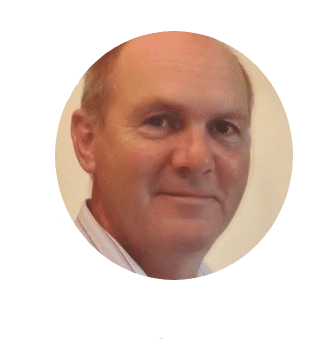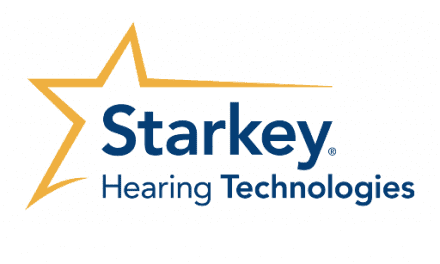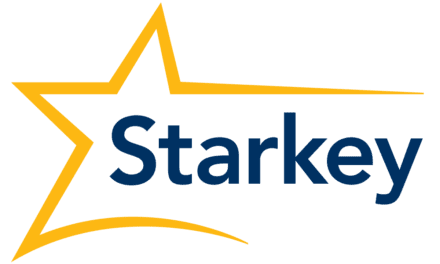What Audiology Looks Like Now—From an Audiologist’s Perspective
In the wake of the COVID-19 pandemic, audiologists around the world are adjusting their best practices to reflect the evolving nature of this novel disease. In this blog, Hearing Aid UK Founder Paul Harrison discusses the “new normal” among audiologists in the UK as it relates to the provision of hearing care with the instillation of new safety protocols to keep both patient and practicioner as protected as possible.
By Paul Harrison
As the UK audiology world gradually starts to reopen its clinic doors, they do so with a dedication and willingness to reach out to the community and serve those with hearing needs once more. Although the transition of adapting normal audiology practice into the one we see today has undoubtedly proven to be challenging, the message remains a positive one. Hearing healthcare can and will be looked after in a time that requires it now more than ever.
Due to the coronavirus pandemic, the audiology services we provide to our patients have changed and shifted into what is now known as the “new normal.” With this change comes uncertainty, both in the length of the pandemic and what the state of the world will be when it ends. However, the continued support from the National Health Service (NHS), the UK government’s current COVID-19 guidelines, the UK’s audiology professional bodies, and the World Health Organization (WHO) has ultimately made this transition possible. There will be many obstacles going forward as we discover more about the virus’s trajectory until a vaccine becomes available.
“We were not recognized as an essential service initially, so we were venturing into the unknown for some time until we obtained the acknowledgment,” said David Roberts, an audiologist at Hearing Aid UK. “This, in itself, was unsettling for both audiologists and patients. Although the lead-up to the opening of our audiologist’s hearing care services was understandably a stressful and sometimes anxious time, we knew that it was an important task that we had to get right, so we could do everything possible to keep us and our patients safe. That alone makes me feel proud of our network.”
Communication is Key
Maintaining a high level of communication between fellow audiologists, key manufacturers in the industry, and colleagues of each practice within our professional network has also played a key role over the last few weeks.
The way we communicate to patients, new and old, has also had to adapt accordingly and has varied by patient and their initial hearing wants and needs. We have reached out remotely where possible using virtual tools and platforms so we can assist those in need in whichever way they choose. However, we have found that by continuing to maintain our patient-centered ethos, regularly updating patients on safe practice and being approachable throughout the pandemic, we have seen an increase in those who can attend clinic choosing to do just that or opting for the convenience of a home visit. We believe that this will only increase as the patient’s confidence to seek hearing care grows and the government starts to relax the coronavirus guidelines in the UK.
The ‘New’ Norm
We have adapted to this new pandemic climate within our practice and home visiting services, as well as ensuring that we are sourcing and maintaining the right personal protective equipment (PPE) successfully. Some examples of the changes implemented are strict sanitization and cleaning methods, reducing appointment times, regular risk assessments and staff training, social distancing where possible, consistent hand and respiratory hygiene aseptic techniques, adaptation of equipment, keeping what equipment is used to a minimum, and removing any unnecessary procedures, such as REMs.
We are constantly rethinking our audiology care in the pandemic, with our priority being to separate the category and assessment needs of the patients we administer to. The UK’s COVID-19 screening questions along with over-the-phone assessments, provide the knowledge and understanding of what care and what type of service is most effective and safe.
We are currently not seeing patients, either in clinic or at home, if they or another member of their household has any symptoms of the virus. We are, however, booking audiology appointments for those who are shielding or labelled as high risk. In such circumstances as these, we are advising the patients to remain isolated and offering them a home visit instead of a clinic-based appointment. We are also providing various earwax services, but due to guidelines, we are prevented from performing micro-suction or hearing tests on patients with an active perforation or “wet ear” because of the possible risk of transmission.
Sustainability
Were we, as an industry, ready for the pandemic? That remains to be seen. What is certain is that the pandemic brought what the professionals are calling a “watershed moment” to the audiology industry, which promoted a positive outlook on remote and telehealth care. This has been an opportunity for audiologists to educate themselves and their patients on a new digital way of practice that ensures hearing services are always accessible. It has taken us into a new era of hearing health care, requiring us to rethink, evolve, and learn to “be prepared” for situations like the one we are facing. From an industry point of view, it has no doubt sparked the beginning of smarter technology that responds more effectively to the shift in our landscape. That being said, remote care was historically only featured in the more premium hearing aid models, as well as only serving current patients, which was, therefore, a limited platform for some.
“Though supporting patients remotely where necessary still warrants importance, the pandemic still requires us to adapt our services by providing limited-exposure hearing care alternatives, ” said Roberts. “An invaluable service that not only ensures accessibility to audiology but also secures the industry by keeping practice doors open and sustainable. While we understand that our unique circumstances in the industry, across the country, and worldwide will vary, our common focus is providing an environment that is as safe as possible for our colleagues, patients, and families.”

This article was written by Paul Harrison. Harrison has been in the audiology industry for over twenty years and started his professional journey at Cambridge. He has worked in both the retail and manufacturing sectors of the industry and dispensed many hearing aid solutions. His profession has led him to roles such as trainer, product manager, sales director, and national sales manager for one of the national hearing aid retailers. He is now the founder of Hearing Aid UK and sits son the council of the British Society of Hearing Aid Audiologists (BSHAA).





